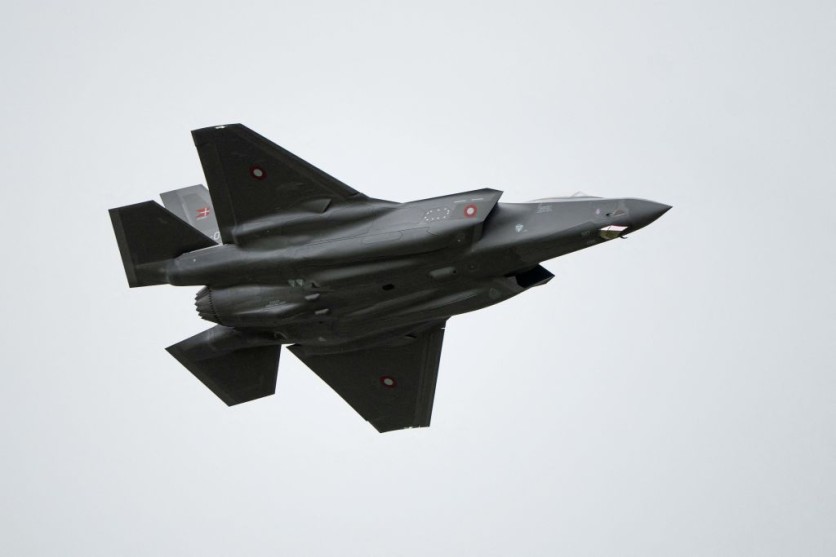The United States Air Force Secretary, Frank Kendell, will reportedly be one of the non-pilot testers of an artificial intelligence-controlled jet, who will observe firsthand how the cutting-edge F-16 aircraft operates in the air.
Speaking on Tuesday at the US Senate Appropriations Committee's military meeting, Air Force Secretary Frank Kendall stated that the program was moving forward quickly and that he would be a test non-pilot in one of the aircraft, along with a backup pilot.
The USAF transported three F-16 jets to Eglin Air Force Base last week to be fully automated as part of the Viper Experimentation and Next-Gen Operations Model (VENOM) testbed program.

(Photo: BO AMSTRUP/Ritzau Scanpix/AFP via Getty Images) An F-35 fighter jet flies as it returns to the Fighter Wing Skrydstrup air base of the Royal Danish Air Force (RDAF) after patrolling around Denmark at low altitude near Skrydstrup, Denmark on October 1, 2023.
VENOM is a part of the Air Force's automation program, which Kendall praised for its advancement. DARPA, the military's research branch, has worked on this for over five years.
In 2023, the Air Force requested about $6 billion to develop a fleet of cutting-edge drones after proving that an F-16 could fly solely with software.
The Pentagon's Collaborative Combat Aircraft (CCA) project had five companies last month competing to develop AI-powered drones for the American military Air Force.
The project's objective is to use AI drones in tandem with human-piloted jets to protect them from hostile fire by acting as scouts, communications hubs, and escorts with full weapons.
The Pentagon program involves five businesses: Anduril Industries, Boeing, Lockheed Martin, General Atomics, and Northrop Grumman. By summer, the Pentagon plans to choose two companies to start building the jets.
Read Also: OpenAI, US Defense Collaboration Offers AI for Military, But Not for AI Weapons
AI Military Planning
The US Military continues to investigate AI-assisted military operations. Just last month, it proposed using AI in the popular military science fiction video game Starcraft II to improve its combat planning capabilities.
Although promising results from recent studies have been reported, experts are still wary of using this technology in actual combat circumstances.
Researchers at the US Army Research Laboratory are testing commercial AI chatbots to serve as battlefield advisors in war gaming simulations.
These tests aim to determine whether AI, specifically OpenAI's technology, can enhance combat planning procedures.
In simulated scenarios, OpenAI's GPT-4 Turbo and GPT-4 Vision models can interpret text and picture information and outperform previous AI agents.
Military Experts on AI
Experts agree that AI can help in developing war plans.
The Center for Cyber and Technology Innovation at the Foundation for the Defense of Democracies, led by retired Rear Adm. Mark Montgomery, asserted that AI and machine learning (ML) could help U.S. intelligence professionals analyze the massive amounts of surveillance data that the nation consumes, especially from China and the Western Pacific Ocean.
Utilizing this new technology can reduce the chance that a decision gone wrong will result in an avoidable armed conflict.
Decision-makers are said to usually misinterpret opponents' goals and mistake training exercises for actual military operations.
Related Article: US Air Force Completes Testing of Hypersonic Missile AGM-183A

(Photo: Tech Times)
ⓒ 2026 TECHTIMES.com All rights reserved. Do not reproduce without permission.




